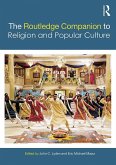The enormous growth of evangelicalism is one of the major developments in recent American life. Like other scholars, Jorstad acknowledges that evangelicalism has grown because it is theologically attractive. But Jorstad also attributes the growth of the evangelical movement to its relationship with American popular culture. According to the author, the evangelical movement was able to integrate populist, democratic traditions with a cultural inclusiveness, a mastery of high technology, and a willingness to use mass media to spread its views.
The book contains three sections. The first traces the development of evangelical subculture between 1960 and 1990. The second part discusses the evangelical movement and social and individual values. The third part explores popular religion and the media. The book considers the involvement of evangelicals in popular religion, the appeal of popular religion to many but not to all evangelicals, the similarities between popular religion and more traditional religious organizations, and the means by which evangelicalism effectively utilizes the many genres and styles of popular culture.
The book contains three sections. The first traces the development of evangelical subculture between 1960 and 1990. The second part discusses the evangelical movement and social and individual values. The third part explores popular religion and the media. The book considers the involvement of evangelicals in popular religion, the appeal of popular religion to many but not to all evangelicals, the similarities between popular religion and more traditional religious organizations, and the means by which evangelicalism effectively utilizes the many genres and styles of popular culture.









